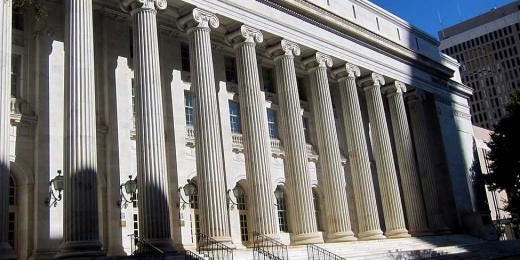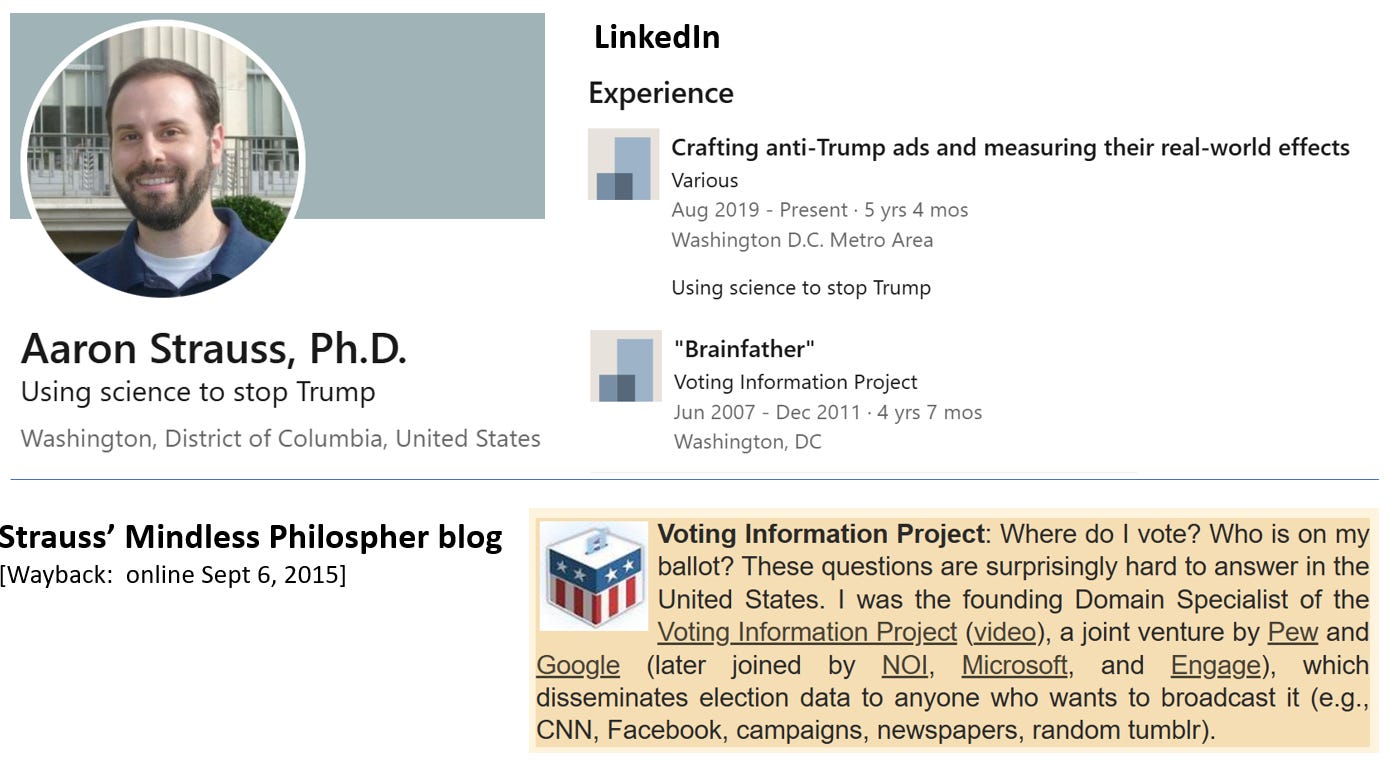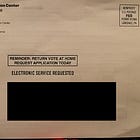Federal appeals court sends Kansas mail ballot application case back to district court
Will third parties be able to use pre-printed ballot application forms in the future?

Recent history of third-party election mailings
In recent election cycles “nonpartisan,” nonprofit groups like Voter Participation Center and Center for Voter Information have flooded Kansans with voter registration forms, mail ballot request forms, and get-out-the vote reminders.
In 2022 VPC/CVI sent 1.5 million mailings to Kansans. Of these mailings 164,325 were voter registration forms and 215,851 were mail ballot requests. Over a million were get-out-the-vote pieces.
The known numbers for VPC/CVI voter registration mailings to Kansans in 2024 were much lower with only 76,511 sent according to emails VPC/CVI provided to the Kansas Secretary of State’s office. Other numbers for 2024 are not known.
VPC/CVI mailings in other parts of the country have created problems for election administrators. This year the Johnson County Election Office had to deal with 43,441 CVI mailings with a wrong street address on a return envelope.
Legislative Response
To eliminate mailings from organizations like VPC/CVI with problem pre-printed name and address information on advance ballot applications, the 2021 Kansas legislature passed House Bill 2332. The bill required: “No portion of such application shall be completed prior to mailing such application to the registered voter.”
This legislation outlawed pre-printed mail ballot applications except for government mailings.
Lawsuit
In June 2021 VoteAmerica and the Voter Participation Center filed a lawsuit to overturn this pre-printed form restriction.
In May 2023 Kansas US District Judge Kathryn found these personalized mailings to be “inherently expressive conduct that the First Amendment embraces.”
Appeal
The defendants in the case, Kansas Secretary of State Scott Schwab, Kansas Attorney General Kris Kobach, and Johnson County District attorney Stephen Howe, filed an appeal in June 2023.
A Watchdog Lab article gave details: Does freedom of speech allow interference in election administration?
Overturned
A week after the general election this month the US Court of Appeals for the Tenth Circuit reversed the decision and sent the matter back to the district court.
The appeals court agreed a “prefilled application is merely conduct, or is speech under the First Amendment.”
The appeals court considered “the scrutiny that we should apply to such speech.”
The Appeals Court concluded “… the claim the Prohibition violates the First Amendment right of free speech because it is overbroad. We reject the claim.”
“The problem with Plaintiffs’ overbreadth claim is that neither they nor the district court has articulated a distinct overbreadth analysis.”
Read the 58-page legal document for details. Time will tell whether third parties will be able to use pre-printed ballot application forms in the future based on new decisions of the District Court.
Voter registration and ballot request form mailings were never nonpartisan
Nonprofits claim they are being nonpartisan in their targeted mailings to potential voters, but recent articles give some statistics that challenge such claims.
Parker Thayer, an investigative researcher at the Capital Research Center, recently opined about “phony partisan ‘charities’” involved in voter registration efforts this year.
Most of the obnoxious ads [this year] came from voter registration “charities” legally required to be nonpartisan. Despite the law, it’s been an open secret for years – decades – that groups like Voter Participation Center, Everybody Votes Campaign, and State Voices exist almost exclusively to help Democrats win by “organizing” the “New American Majority,” a made-up cocktail of all demographic groups that just so happen to favor Democrats. Hundreds of groups use this model, and a $1 billion industry thrived in the shadows, thanks to the neglect of the IRS and the media.
Thayer’s commentary mentioned a memo from April 2024 penned by Democratic strategist Aaron Strauss (see sidebar below) who “advised Democratic megadonors to abandon ‘nonpartisan’ voter registration because most unregistered voters were now Republicans.”
Strauss’ memo cannot be found on the Internet, but the Washington Post revealed statistics that concerned Strauss:
At the root of the conflict is a shift in the political preferences of nonregistered voters. Gallup found in 2016 that about 51 percent of those not registered to vote identify as Democrats or leaned Democratic, compared to 31 percent who identify as Republican or leaned Republican. Those numbers were largely consistent with findings from 2012.
But Gallup surveys in 2023 and 2024 have found the Democratic share of the nonregistered population has fallen to 42 percent, while the Republican share has risen to 40 percent.
The Gallup survey indicated “nonpartisan” voter registrations this year would not give the Democrats a clear advantage, so Strauss argued it should be abandoned or more focused to be successful.
In Kansas this year nonprofits VPC/CVI only targeted voters in Kansas counties in the KS-03 Congressional District — the only Democratic seat in Kansas. How is that nonpartisan?
Who is Aaron Strauss?
Strauss is a one-of-a-kind expert on voter registration and voter targeting. He was the Executive Director of the Analyst Institute from 2014 to 2019.
According to his LinkedIn page Strauss has been “using science to stop Trump” for more than five years.
Strauss is the self-proclaimed “brainfather” of the Voting Information Project, which was incubated by Pew and Google, and later joined by the Soros-funded New Organizing Institute, Microsoft and Engage. This project dates back to 2007, but VIP is now run by Democracy Works.
Related
Voters surprised and concerned after receiving letters in the mail with voter records, WUSA9, Washington, DC, Oct. 30, 2024.
Why you keep getting those creepy mailers about your neighbors’ voting habits, Minnesota Reformer, Oct. 30, 2024.









